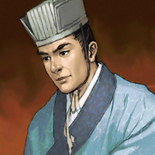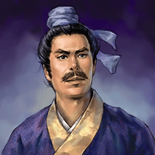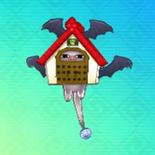| Ju Shou | |
| Force(s): | Han Fu's Forces Yuan Shao's Forces |
|---|---|
| Weapon Type: | Sword (2~7) Spear (8) |
| Unit Type: | Strategist (2~8) |
| Significant Battle(s): | |
| First Appearance: | Dynasty Warriors 2 |
| Real name: | Jū Shòu
|
| Chinese name: | 沮授 - 沮授
|
| Style name: | unknown
|
| Chinese name: | n/a
|
| Born: | ?
|
| Died: | 200
|
Ju Shou (onyomi: Sho Ju) was a strategist who served Han Fu and Yuan Shao. During the Battle of Guandu, he advised Yuan Shao to remain cautious, but his advice was ignored and he was demoted. He was captured by Cao Cao, but attempted to flee and was killed. He often quarreled with Yuan Shao's favorite advisory Guo Tu.
Roles in Games
Ju Shou appears as an officer for Yuan Shao in Dynasty Warriors. He usually stays in Yuan Shao's main camp and defends it from invaders. In Dynasty Warriors 8, he plays an important role in Yuan Shao's story stage. He would warn Yuan Shao about Guan Yu's relations to Liu Bei and Zhang Fei, possible defections of Zhang He and Zhenji, and the enemy's attempt to attack Wuchao. Should Yuan Shao succeed in taking his advice, Ju Shou praises him for his efforts.
In Romance of the Three Kingdoms, Ju Shou has high domestic stats and is among the most intelligent officers in the game. Serving Han Fu at the beginning, he switches to Yuan Shao in the following scenarios up to Guandu.
Voice Actors
- Jackson Robinson - Dynasty Warriors 8 (English-uncredited)
- Han Shin - Dynasty Warriors: Unleashed (Korean)
- Kim Taeyeong - Romance of the Three Kingdoms: The Legend of Cao Cao (Korean)
Quotes
- "Absolutely splendid, my lord! The enemy's stale tactics are worthless in comparison."
- "It is nothing, really. Such trickery merely withers in the face of the nobility."
- ~~Ju Shou and Yuan Shao; Dynasty Warriors 8
Historical Information
Ju Shou was clerk serving under Han Fu in Ji Province. When Yuan Shao overtook Ji, Ju Shou joined him and became an Army Controller. He served as an adviser in the war against the warlord Gongsun Zan. At the battle of Guandu, Ju Shou was one of the chief advisers. He advised Yuan Shao against having Yan Liang lead the main army on the attack on Baima, but Yuan Shao ignored his advice, leading to his forces being defeated and Yan Liang being slain.
After Wen Chou's death at Yanjin, Yuan Shao decided to lead his men personally to Guandu. Ju Shou advised to concentrate on defense instead because they had more soldiers, more supplies and a landscape advantage over Cao Cao. Yuan Shao refused to listen again and assigned the general Chunyu Qiong to guard the supply depot at Wuchao, which Ju Shou objected again. Yuan Shao got sick of him and Ju Shou was demoted. Yuan Shao then suffered a great loss against Cao Cao at Guandu and Wuchao was burnt in a night raid.
Yuan Shao fled to Hebei, but Ju Shou was captured by Cao Cao's men, but Cao Cao treated him with great respect. He refused to defect to Cao Cao, however, saying that his family had always served the Yuans and it wouldn't change. Cao Cao was moved by his loyalty and kept him in his camp in order to give him time to think about his decision again. At night, Ju Shou stole a horse and attempted to flee, but Cao Cao's men killed him. Cao Cao mourned his death and gave him a proper burial.
Romance of the Three Kingdoms
In the novel, Ju Shou advised Yuan Shao to kill Liu Bei during the latter's stay in Yuan Shao's camp when Guan Yu had killed Yan Liang and Wen Chou, stating that Liu Bei was a mole for Cao Cao. Yuan Shao was tricked into thinking that the general who slew the two generals only resembled Guan Yu and that it was not Guan Yu himself. Thus, Yuan Shao rejected the advice. Later, instead of being demoted, Yuan Shao imprisoned Ju Shou for his advice against the Guandu campaign. Due to his imprisonment, Ju Shou was captured by Cao Cao's men while the others manage to flee. After being captured, he cried "I will not surrender!" when taken before Cao Cao. At night, when he attempted to steal a horse, Cao Cao's men captured him again and Cao Cao angrily put him to death, although he mourned his death afterwards.
Gallery
Gallery
|
|---|
Hikikoumori Ju Shou in Youkai Sangokushi
Romance of the Three Kingdoms: The Legend of Cao Cao portrait |

















